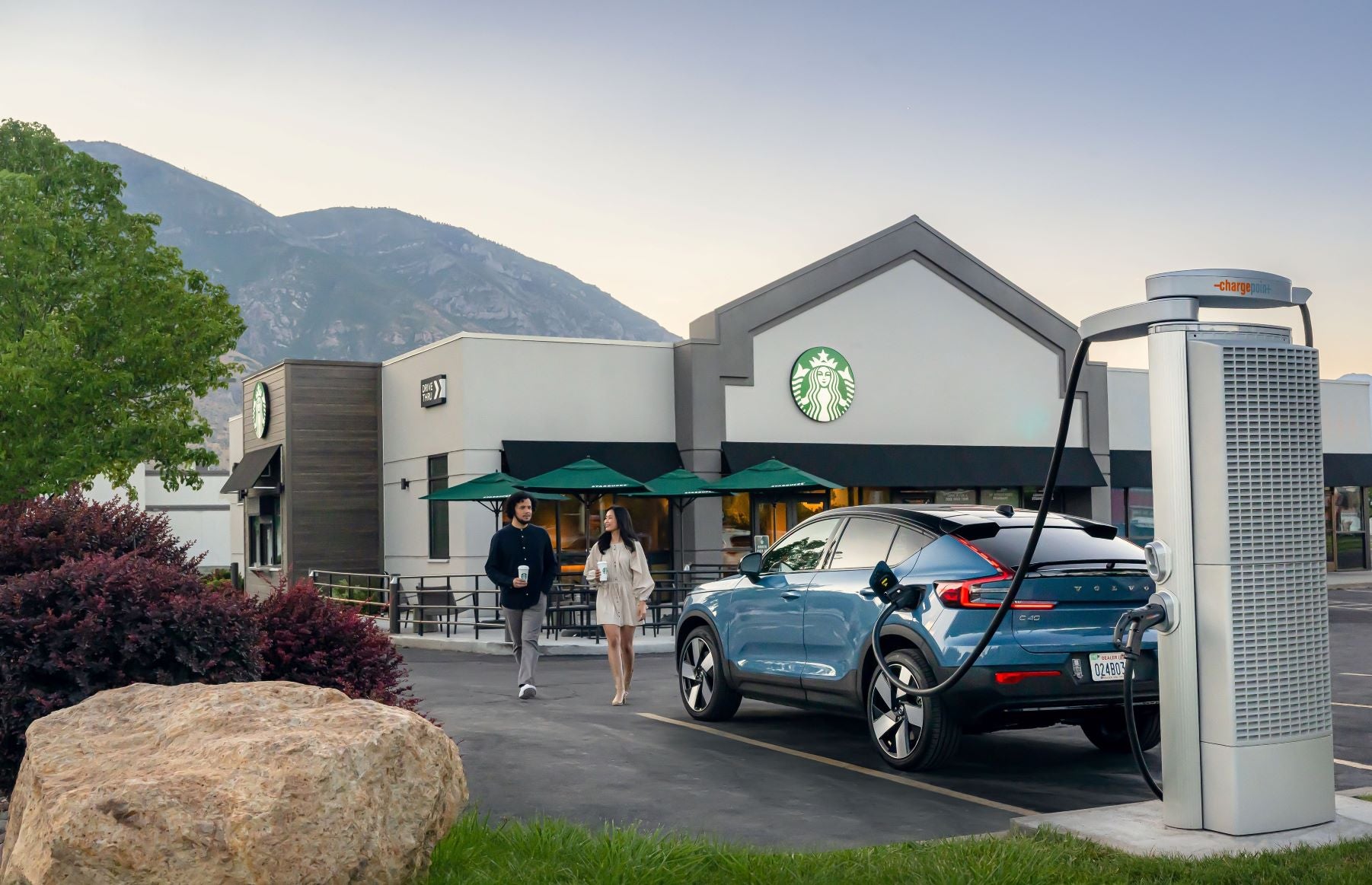
Volvo Cars has described its third quarter 2022 as one of “multiple headwinds” though “demand continued to be robust”.
Retail sales fell 8% to 138,000 units and revenue rose 30% to SEK79.3bn. However, operating profit (EBIT) fell to SEK2.1bn from SEK3.3bn in Q3 2021.

Discover B2B Marketing That Performs
Combine business intelligence and editorial excellence to reach engaged professionals across 36 leading media platforms.
EBIT margin also fell, from 5.5% to 2.6%. EBIT margin, excluding the share of income from joint ventures and associates, was down to 4.4% from 7.1% while earnings per share slipped to SEK0.11 from SEK0.86.
The Geely owned automaker said its electrified Recharge range accounted for 25.1% of total sales in the third quarter, of which 7.4% were fully electric, up 87%.
The company will soon reveal the full electric EX90 large SUV, details of which it has been ‘teasing’ over the last few months. It will then launch one new BEV model every year, as it targets selling only fully electric cars by 2030.
The BEV line in September accounted for 6,000 sales or 12% of overall volume versus 3.5% a year ago.
“For 2022, the company expects the share of its fully electric cars to be tracking towards a double-digit share, as previously communicated,” Volvo said.
“Macroeconomic uncertainties around the world weighed on our third quarter performance,” said Volvo president and chief executive Jim Rowan. “But with a nimble and agile organisation, strong financial position and ample liquidity, we are confident we will tide over the ongoing challenges.”
Higher raw material costs, spot buying of semiconductors to fill a production shortfall and logistics costs contributed to the lower operating profit, the automaker said.
Manufacturing output continued to improve quarter on quarter in Q3, the company said.
“However, unforeseen factors such as power outages and COVID-19-related lockdowns in China slowed down the pace of normalisation [we were] anticipating.
“Provided there are no further major supply chain disturbances, the company expects the improved production run rate to continue into the fourth quarter and into 2023.”
For the second half of the year, Volvo Cars expects production, wholesale and retail growth compared with the same period last year. For full year 2022, it slightly lower wholesale volume than 2021, “assuming no further major supply chain disturbances. Wholesale and retail volumes will be on similar levels”.
Online sales also grew with the number of active subscriptions under the Care by Volvo brand up 67% in Q3. But, in the third quarter, online accounted for 6% of total sales in established markets versus 8% in Q3 2021.
“This was due to the prioritisation of other sales channels during the period,” the automaker said.
“Looking ahead, [we remain] focused on managing the macroeconomic headwinds and ongoing turbulence as well as possible. The company is reinforcing comprehensive operational efficiencies across the business to improve productivity.”
Like rival EV makers, it was “going further into the supply chain to forge partnerships” that would enable it “to secure greater access to affordable and sustainable raw materials, focusing on the most critical materials such as lithium and nickel”.






